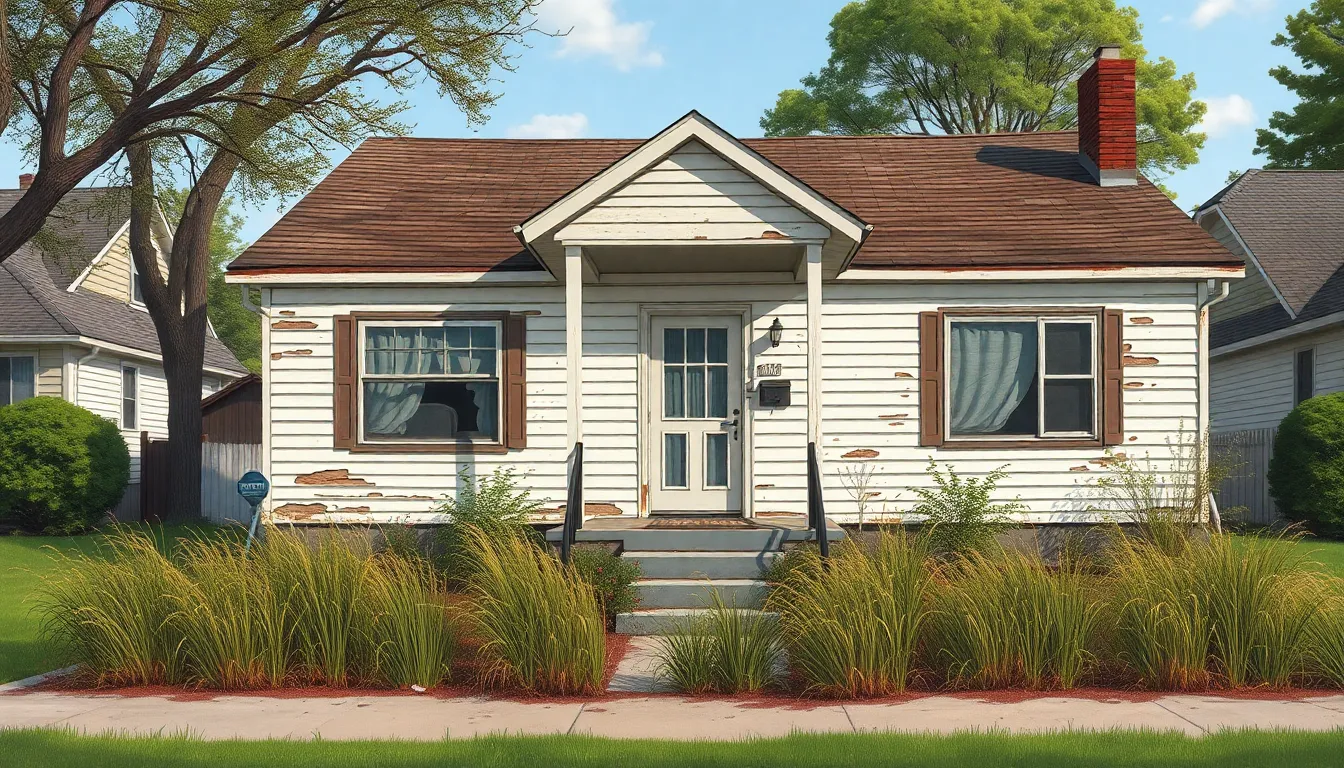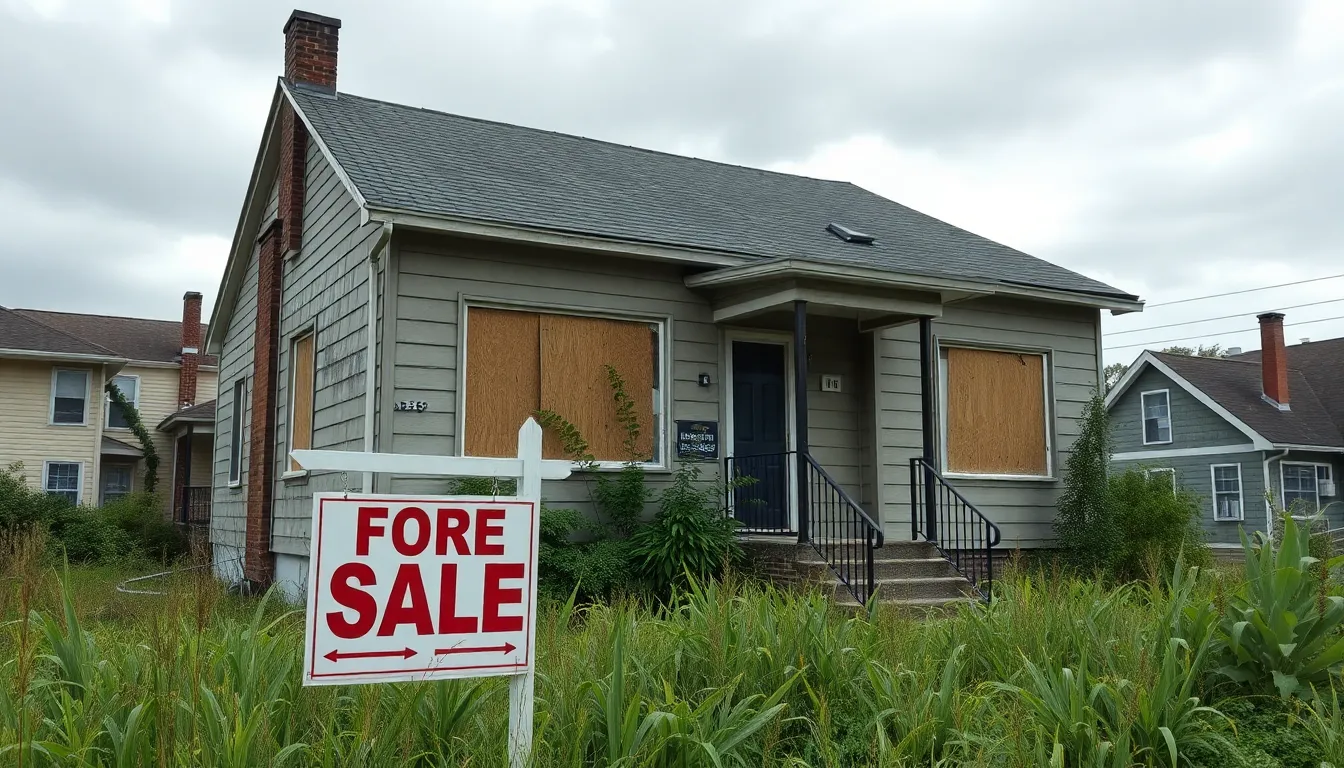Table of Contents
ToggleBuying a foreclosed home can feel like striking gold at a garage sale, but hold your horses! While the price tag might make your wallet sing, the risks lurking beneath the surface could turn your dream into a nightmare faster than you can say “fixer-upper.”
Picture this: you find a charming house with a price that’s too good to be true. But what about hidden repairs, legal troubles, or even the ghost of the previous owner? Before diving headfirst into the foreclosure pool, it’s crucial to know what you’re really getting into.
Overview of Foreclosed Homes
Foreclosed homes result from mortgage defaults, leading banks or lenders to reclaim properties. These homes often enter the market at lower prices than comparable properties, attracting potential buyers. While this can create opportunities, buyers must recognize inherent risks.
Investors and homebuyers may find listings for foreclosed homes on various platforms, including real estate websites and auctions. Investigating property conditions is crucial, as many foreclosures require significant repairs. Uncovering hidden damages, such as plumbing issues or roof leaks, can pose financial challenges after purchase.
Additionally, buyers should consider the legal implications associated with foreclosures. Liens may exist on properties, complicating ownership transfers. Reviewing all legal documents before purchasing helps ensure a smooth transaction.
Past occupants might still have emotional ties to the property, leading to complications. Delays in evictions can affect a buyer’s plans, making it essential to factor this possibility into timelines.
Markets vary, impacting available foreclosures. Many regions experience heightened competition for these properties, driving up prices in certain cases. Understanding local market dynamics helps buyers make informed decisions.
Researching financing options is vital when purchasing a foreclosed home. Some loans have specific requirements for properties that may not meet traditional standards. Securing the right financing can streamline the buying process.
Evaluating the entire purchasing process enables individuals to navigate the complexities of foreclosures effectively. Grasping the potential pitfalls ensures that buyers maximize their investment and minimize surprises along the way.
Common Risks of Buying a Foreclosed Home

Buying a foreclosed home involves several potential risks that buyers must carefully consider. Understanding these risks helps in making informed decisions throughout the purchasing process.
Property Condition Issues
Property condition issues often arise with foreclosures due to neglect and damage. Many homes sit vacant for extended periods, causing deterioration in plumbing, electrical systems, or structural integrity. Buyers frequently discover hidden problems, such as mold or pest infestations. Inspections are crucial to identify any significant repairs before committing to a purchase. Buyers often face the challenge of budgeting for unexpected repairs, impacting overall affordability.
Title Issues
Title issues can complicate the purchasing process for foreclosed properties. Sometimes, liens or claims against the property remain unresolved, leading to potential legal disputes. A thorough title search is essential to uncover any outstanding obligations that could affect ownership. Buyers may confront delays in the closing process if title issues arise. Engaging a qualified title company ensures that ownership transfers smoothly without complications.
Financial Implications
Financial implications are another significant risk associated with buying foreclosed homes. Often, these properties require substantial investment for repairs and renovations, exceeding initial purchase prices. Buyers must secure financing options that cater to properties needing work, as not all loans allow for such needs. In addition, potential hidden costs, such as unpaid taxes or association fees, can quickly add up. Thoroughly analyzing finances helps buyers avoid surprises after the purchase.
Legal Considerations
Legal considerations play a crucial role in purchasing a foreclosed home. Buyers must navigate various aspects of the process to ensure a smooth transaction.
Understanding the Process
Understanding the foreclosure process is essential. Courts may involve different legal requirements, and timelines can vary across states. Knowing the stages, such as pre-foreclosure, auction, and post-foreclosure, helps buyers set realistic expectations. Engaging a real estate attorney familiar with local laws offers added protection. A thorough examination of the property’s status offers insight into possible issues that may arise.
Potential Liens and Debts
Potential liens and debts pose significant risks. Previous owners might retain outstanding obligations, such as unpaid taxes or homeowner association fees. Buyers inherit these responsibilities upon purchase. Conducting a title search uncovers any existing liens, enabling informed decisions. Consulting with a title company ensures buyers are aware of all liabilities. Addressing these financial burdens before closing prevents future complications.
Mitigating Risks When Purchasing
Conducting thorough inspections greatly reduces potential problems when buying a foreclosed home. Inspectors can identify hidden damages, such as plumbing issues or structural deficiencies. Buyers must budget for unexpected repairs, which often arise in neglected properties.
Engaging a qualified real estate attorney provides essential legal guidance. An attorney clarifies the foreclosure process, which varies by state, and assists in understanding local laws. Navigating title searches with a reputable title company also uncovers existing liens or debts, ensuring all financial obligations are clear.
Researching the local market provides insights into competition and pricing trends. Working with a knowledgeable real estate agent aids in assessing properties and understanding the potential for property value increase. Local conditions influence buying decisions, so staying informed is critical.
Securing financing before making an offer helps streamline the purchasing process. Many lenders have specific requirements for foreclosed properties, making pre-approval essential. Understanding the buyer’s financial situation allows for realistic budgeting and investment planning.
Considering an exit strategy is also vital for long-term financial health. Buyers need to think about resale potential, especially in fluctuating markets. Developing a plan for future use, whether as a rental or personal residence, influences the purchasing decision.
Incorporating these strategies enhances the overall buying experience. By prioritizing inspections, legal guidance, market research, financing, and strategic planning, buyers gain confidence in their foreclosure investment.
Buying a foreclosed home can be an appealing opportunity but it’s essential to approach it with caution. Recognizing the potential hidden issues and legal complexities is crucial for a successful investment. Conducting thorough inspections and engaging legal expertise can help mitigate risks associated with repairs and title complications.
Understanding local market dynamics also plays a significant role in making informed decisions. By preparing for the financial implications and having a clear exit strategy, buyers can navigate the foreclosure process more confidently. Ultimately, being well-informed and proactive can transform the experience into a rewarding venture.







